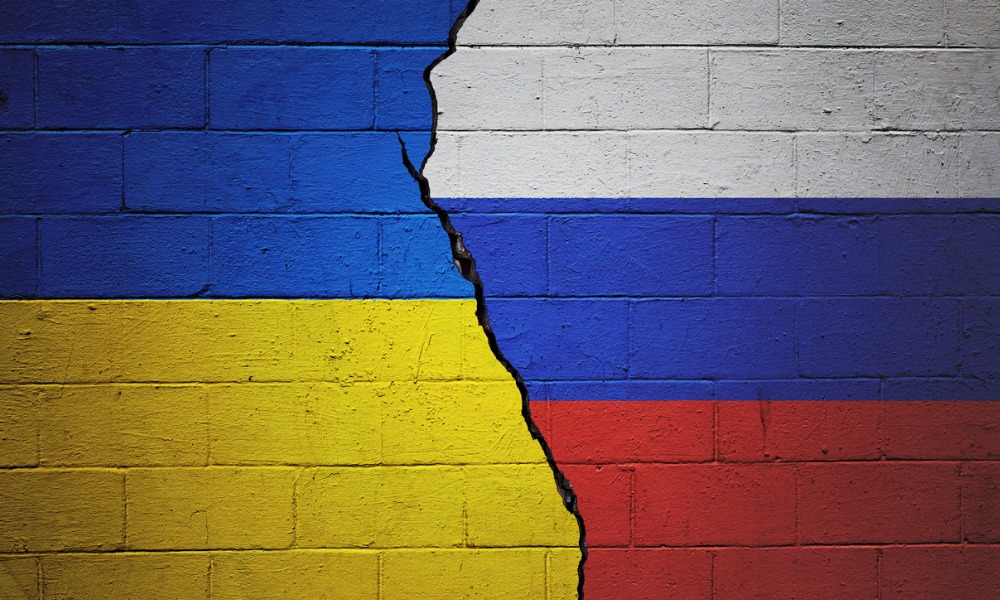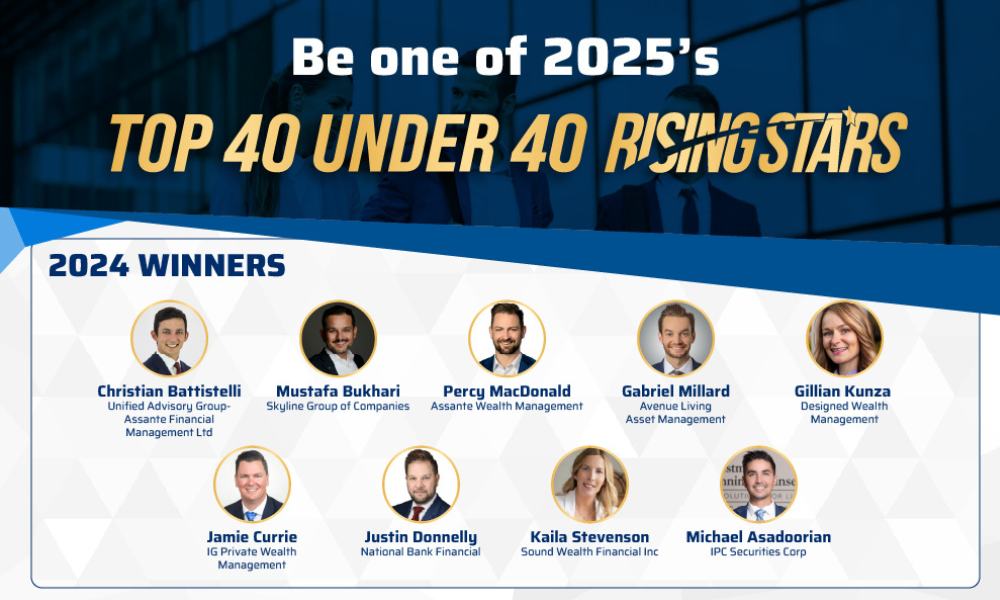Watch Chile and Brazil for new hedges to replace traditional bonds and tech stocks

Russia’s invasion of Ukraine has changed the global landscape and been a litmus test for new investment leaders, according to Tyler Mordy of Forstrong Global Asset Management Inc.
“You’ve got the prospect of World War III hanging over us,” Mordy, Forstrong’s Chief Executive Officer and Chief Investment Officer, told Wealth Professional in a new WP Talk podcast. “We released a piece called Putin’s War: The Week a Decade Happened. That goes back to the quote from Lenin, who was the founding head of the Soviet Union. He delivered the most memorable and deadly one-liner that says there are decades when nothing happens, and there are weeks when decades happen. In the last few weeks, a decade has indeed happened.”
Mordy noted that Putin had managed to revitalize NATO, unify the splintered west, and turn Ukraine’s little-known president into a global hero.” Mordy added that Putin has also “totally destroyed Russia’s economy, and solidified his legacy as a war criminal.”
You can listen to Mordy’s interview here on WP Talk, sponsored by Mackenzie Investments.
Mordy said that there has never been such a swift and punishing response to such a tragic situation. While some may debate the efficacy of sanctions on the economy, Mordy said it has crippled Putin’s ability to push his agenda forward – and been a litmus test for new leaders in investment.
“If you go back, before Russia invaded Ukraine, on February 24, we had been suggesting that there was an investment leadership change going on in the market,” he said. “What we mean by that is the leaders that you’ve seen over the last ten years, particularly in the 2010s, which was when the U.S. dollar was strong, and US large cap growth stocks and technology stocks were extremely strong. We felt that had been changing even prior to the invasion. So, I think the invasion revealed the durability of this new investment leadership.”
“There are no winners in war, but there are winners and losers in the investment landscape. The winners are the countries that have as similar an economic makeup to Russia as possible, so we’ve seen Canada win. But, you look at countries that have truly won and you see countries like Chile, which is the largest copper exporter in the world. You look at Brazil, a huge exporter of food. The closer they are to the Russian economy, the more they’ve won through this.”
Mordy said emerging markets are up 20% to 25% year-to-date and the technology sector is a bear market, so leadership in this “global stress test” is over.
“We will see a different leadership change,” he said. “I think the durability of these new trends that we’ve been positioned for are well in play on this, and this kind of builds on the momentum.”
While Mordy said the traditional hedges for crises like this would be a skyrocketing U.S. dollar and government bonds rallying, “those have been horrible hedges throughout the crisis.
“This builds on our leadership change. We think that along with moving away from the NASDAQ commodity exporting countries and international value stocks, the hedges will change. Building a balanced portfolio will become trickier. We used to rely on government bonds, and there’s still some attraction to them. But, you’ve got a rate hiking cycle in the west and headwinds in terms of inflation and slowing growth in the west. And here you have little-known hedges.”
Mordy thinks sanctions against Russia are crippling its export markets, meaning countries like Chile and Brazil will do well, even as wheat, copper, and nickel, as well as Russian oil are constrained.
“it’s a non-traditional definition of a portfolio hedge, but one has to look further afield and go to different investment classes that you may not have looked at,” he said. “The world has turned upside down in a matter of a few weeks. So, we’re building portfolios that we think can withstand the shocks of this modern and very differentiated world.”
So, even though markets are volatile and global growth optimism is at its lowest level since mid-2008, Mordy said the investment risks are now much lower than before the Russian invasion because the markets have already priced in those risks.
While there’s still a danger of people panic-selling, Mordy’s looking for the durable themes and seeing that international stocks and value-oriented stocks can function as non-traditional hedges.
“If another decade happens next week,” said Mordy, “portfolios will be well into insulating against market shocks, given that we’ve already seen how they function in those crisis periods.
“We could be wrong. We could have this World War III scenario. But, if you think about markets like an ecosystem, if you suppress one economy somewhere, then something else is going to spring up in another place. So, right now is time for global diversification.”
You can listen to Mordy’s interview here on WP Talk, sponsored by Mackenzie Investments.



